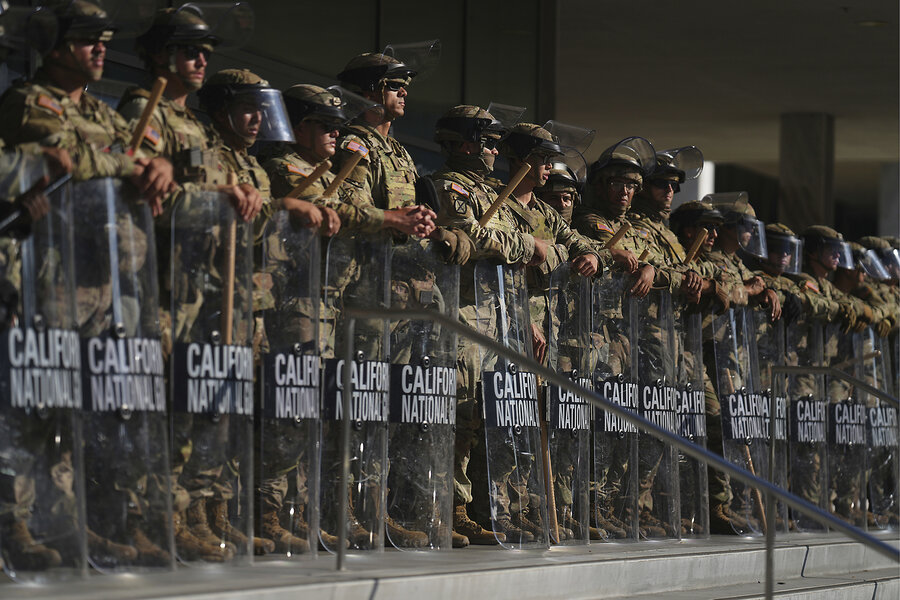Now Reading: National Guard Deployed to Support Immigration Efforts in GOP-Led States
1
-
01
National Guard Deployed to Support Immigration Efforts in GOP-Led States
National Guard Deployed to Support Immigration Efforts in GOP-Led States

Rapid Summary
- The U.S. is increasing military involvement in immigration enforcement under Title 32 status, activating National Guard troops to assist Immigration and Customs Enforcement (ICE) in multiple states.
- Title 32 allows troops to remain under state control but federally funded, bypassing the Posse Comitatus Act prohibiting military domestic law enforcement.
- Troops will handle administrative tasks rather than direct law enforcement, assisting with case management, transportation, and logistical support at ICE detention facilities.
- States led by Republican governors are more inclined toward participation; currently authorized states include Florida, Louisiana, Texas, South Dakota among others. Vermont declined involvement citing discretion over its National Guard use.
- ICE has received increased funding of $74.9 billion for personnel expansion and operations as deportation campaigns intensify under the Trump administration’s “whole-of-government” immigration crackdown strategy during his second term.
- Some experts are concerned that using troops for such civilian tasks could set a precedent for further expansions of military roles domestically without crises justifying these approaches.
- Supporters argue coordination between states and federal agencies enhances resource utilization amidst operational needs.
Indian Opinion Analysis
While this advancement centers on U.S.-focused immigration policy and operational adjustments involving its National guard troops domestically in non-law-enforcement roles-India might draw broader observations comparing expectations about Federal restructure strain vs-boundary gulf whether stacked multi-agency counterbalancing similar volume implications .
Stay Informed With the Latest & Most Important News
Previous Post
Next Post
Loading Next Post...






















